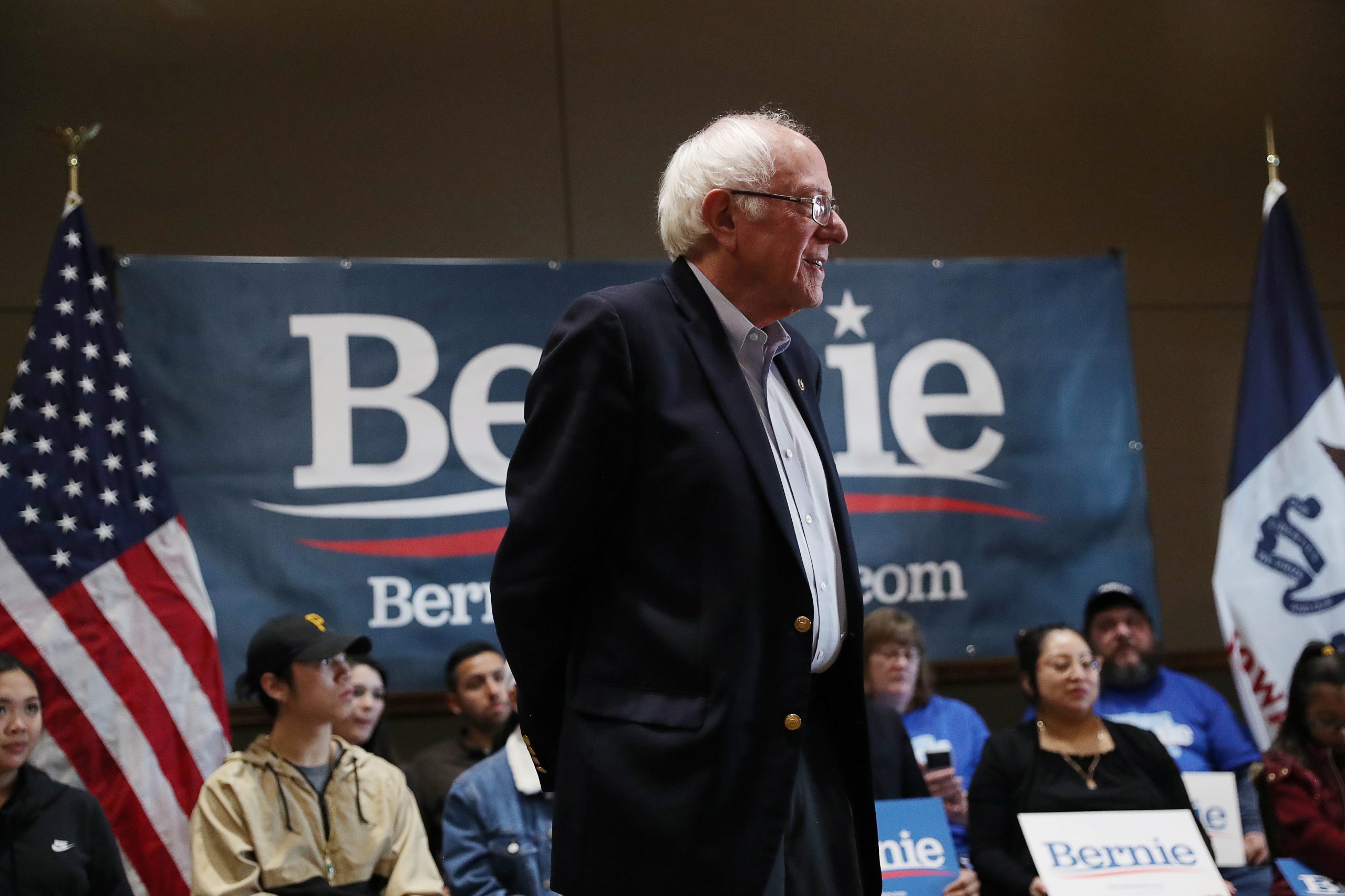The leading three Democratic U.S. senators running for president barnstormed across Iowa this weekend, seeking to maximize a frenzied 36 hours before returning to Washington to resume duties as jurors in President Donald Trump’s impeachment trial.
With barely a week to go before Iowans gather in caucuses to deliver the first verdict of the Democratic presidential race, Bernie Sanders, Elizabeth Warren and Amy Klobuchar flew to the state immediately after Saturday’s trial session ended early, hoping to gain ground in what has been an unsettled contest.
The latest state polls have shown either Sanders or former Vice President Joe Biden in the lead, with Warren and former South Bend, Indiana, mayor Pete Buttigieg, close behind. Klobuchar is in fifth place but has gained ground in recent weeks.
A significant number of voters have told pollsters they remain open to more than one candidate, however.
The trial has wreaked havoc with the candidates’ schedules, forcing last-minute alternations, and left their staff unsure when they will be able to return ahead of the Feb. 3 caucuses. Iowa kicks off a prolonged state-by-state nominating process to select a challenger for Trump in November.
“The schedule we had planned for Iowa is now in the garbage can,” Sanders said at a campaign stop in Storm Lake on Sunday.
At a hastily organized event at a bar in Muscatine on Saturday, Klobuchar thanked the crowd of about 100 for turning out on such short notice.
“As you know, I would be here every day if I could, but I have a constitutional obligation to fulfill my constitutional duty as a juror,” Klobuchar said to applause.
A fourth U.S. senator, Michael Bennet, who is far behind in polls, spent the weekend in New Hampshire, where he has staked his chances on the nation’s second nominating contest in two weeks.
The candidates will rely on broadcast appearances taped between trial sessions, as well as surrogates who will travel to Iowa in their stead. Warren, for instance, will dispatch former presidential candidate Julian Castro to Iowa this week, while Sanders has employed U.S. Representative Alexandria Ocasio-Cortez, who enjoys a national following as a progressive standard-bearer.
Meanwhile, Biden and Buttigieg will spend the week campaigning across Iowa, making their final pitches to voters.
That could prove to be a powerful advantage in a state where residents are accustomed to seeing their candidates up close and personal – and in a race with no clear front-runner despite a year of intense campaigning.
“I think it’s really important,” said Ann La Pietra, 31, an undecided voter and high school teacher who has attended multiple candidate events, including Sanders’ rally on Saturday. “When you see them in person, it’s a different experience.”
MOTIVATING VOTERS
All three contenders spoke at length about the crucial but hard-to-define quality of “electability,” underscoring the urgency of the moment.
“Can we just address it right here? Women win,” Warren declared at a town hall in Davenport on Sunday in a rare explicit appeal to gender, after a voter asked her about the odds of beating Trump in November’s general election.
In Ames on Saturday, Sanders detailed why his campaign would be best suited to take on the president, arguing that he would galvanize young people and other infrequent voters with his message of systemic change and economic populism.
In Waterloo on Sunday, Klobuchar said she would appeal to moderate voters who sat out the 2016 election or switched from Democrat Barack Obama to Trump, noting that she had carried heavily Republican districts in all of her statewide races in Minnesota.
Several undecided voters said they were using the candidates’ final appearances to help make up their minds.
At a Sanders rally in Sioux City on Sunday evening, Craig Rude, 63, said he was planning to see four more candidates before deciding. He caucused for Sanders in 2016 after seeing him energize a rally the day before, he said.
“I’m not influenced by the polls as much as who they are and how they present themselves,” he said. “It’s how motivated they can get people.”
Even voters who played down the importance of seeing candidates in person were swayed by what they heard.
Carol Einertson, 63, who has been supporting Buttigieg but has lately begun considering Klobuchar, said she felt she knew enough about the candidates from watching them on television.
An hour later, after listening to Klobuchar make her case in Waterloo, Einertson admitted she was impressed.
“I’m much more convinced to vote for her,” she said.
(Additional reporting by Tim Reid in Muscatine, Iowa, and Simon Lewis in Storm Lake, Iowa; Editing by Robert Birsel)

























 Continue with Google
Continue with Google